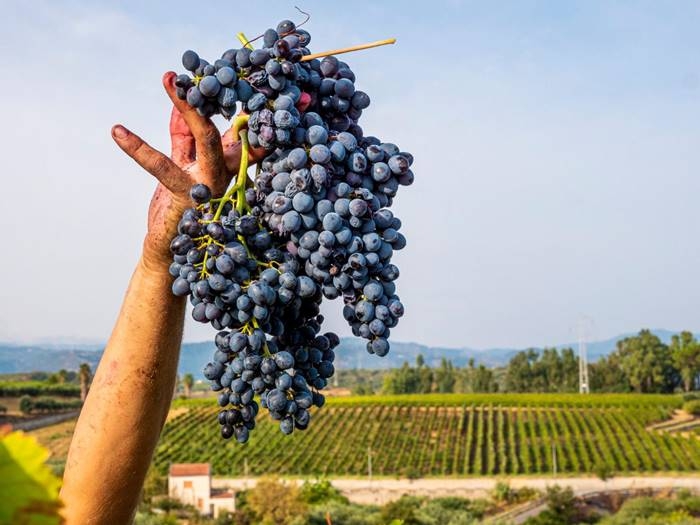Pioneering Research: Reducing Alcohol Content in Nero d’Avola Wine
Collaborative Effort Focuses on Sustainability and Quality in Sicilian Wine Production
2025-01-23

Assovini Sicilia, in collaboration with the University of Milan, has initiated a groundbreaking research project called InnoNDA, aimed at addressing key challenges in the production of Nero d'Avola wine. The project, launched in Palermo on January 23, focuses on diversifying wine production, evaluating the diversity of the Nero d'Avola grape variety, and reducing alcohol content while preserving the wine's quality.
The InnoNDA project is a joint effort led by Assovini Sicilia, involving the University of Milan, ISVEA laboratories, and several prominent wineries, including Dimore di Giurfo, Feudi del Pisciotto, Tenute Lombardo, and Tenuta Rapitalà. Additionally, professionals like innovation broker Leonardo La Corte are contributing their expertise to the project. This collaboration marks a significant advancement in the study of wine characteristics, particularly for Nero d'Avola, the most renowned native red grape variety in Sicily.
The primary objectives of InnoNDA are to explore agronomic and oenological techniques that can produce wines with lower alcohol content without compromising the aromatic intensity and distinctive taste of Nero d'Avola. The project also aims to diversify production methods by utilizing terracotta amphorae and assessing the diversity of Nero d'Avola grapes cultivated in different regions of Sicily. This research, which began in April 2024, employs a scientific approach that includes the use of new technologies and fermentation strategies previously unexplored in Nero d'Avola vinification.
Maceration and aging in amphorae are ancient winemaking techniques, but their impact on Nero d'Avola has not been extensively studied. The diversity of terroir and the age of vineyards in Sicily can significantly influence the characteristics of grapes and, consequently, the wine produced. Older vineyards may exhibit greater resilience to climate stress, making them valuable for maintaining wine quality. InnoNDA aims to enhance wine quality by emphasizing the complexity and expression of terroir and the unique characteristics of the grape variety.
Reducing alcohol content in wine is a growing consumer demand, especially as climate change influences grape sugar levels and, consequently, alcohol content. InnoNDA is exploring production methods that can meet this demand while ensuring that the sensory characteristics of the wine remain enjoyable. This project exemplifies a successful collaboration between academia and the private sector, combining research and innovation to address modern challenges in the Italian wine industry. Researchers, winemakers, and professionals are working together to achieve these goals without sacrificing quality and authenticity.
Lilly Fazio, vice president of Assovini Sicilia, emphasized the importance of studying agronomic and winemaking techniques in the face of climate change and evolving consumer preferences. She highlighted that this innovative study, supported by the Regional Department of Agriculture, will help improve sustainable production and address global challenges. Professor Daniela Fracassetti of the University of Milan and scientific director of the project, noted that InnoNDA aims to bring innovation through new winemaking approaches, providing scientific evidence to support producers in the conscious growth of the wine sector. Leonardo La Corte, an oenologist involved in the project, expressed enthusiasm for the ISVEA laboratory's role in reducing alcohol content and diversifying production to give a new identity to Nero d'Avola, a symbol of Made in Sicily worldwide.
Founded in 2007, Vinetur® is a registered trademark of VGSC S.L. with a long history in the wine industry.
VGSC, S.L. with VAT number B70255591 is a spanish company legally registered in the Commercial Register of the city of Santiago de Compostela, with registration number: Bulletin 181, Reference 356049 in Volume 13, Page 107, Section 6, Sheet 45028, Entry 2.
Email: [email protected]
Headquarters and offices located in Vilagarcia de Arousa, Spain.